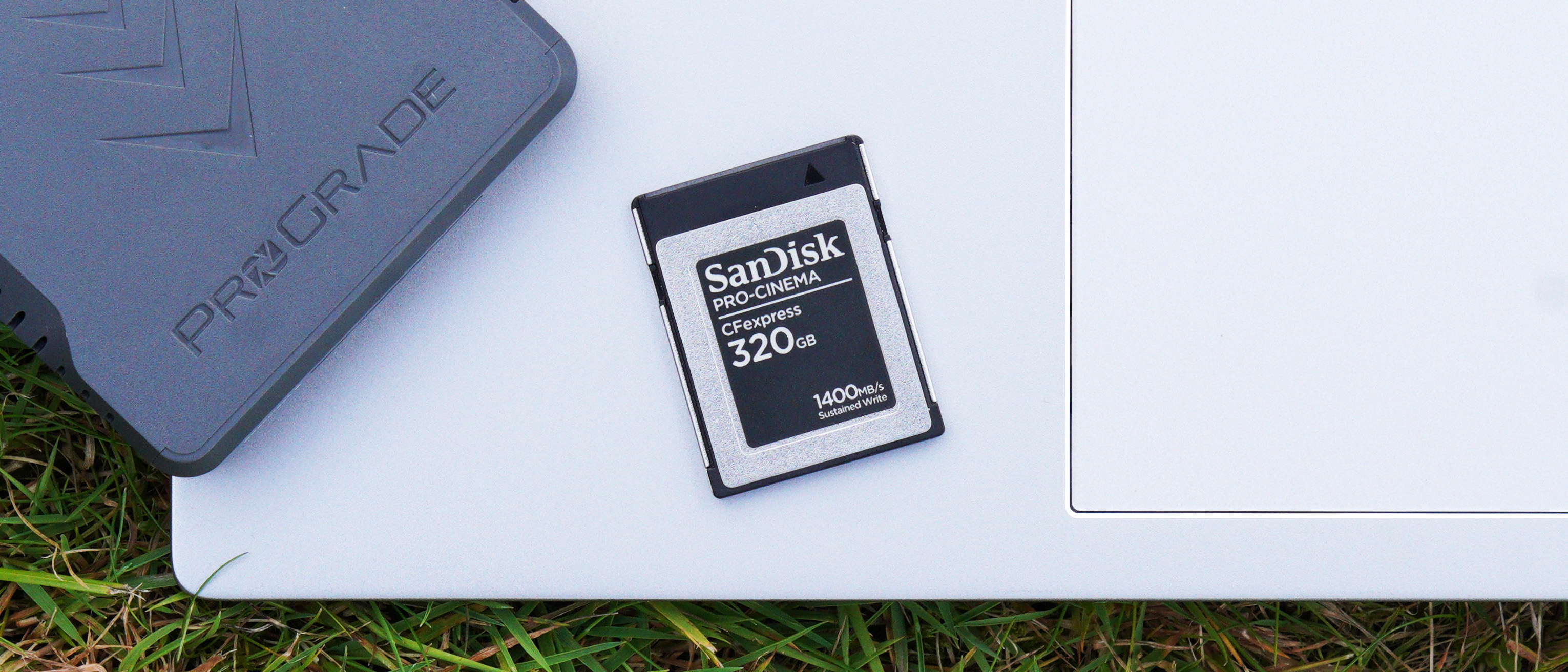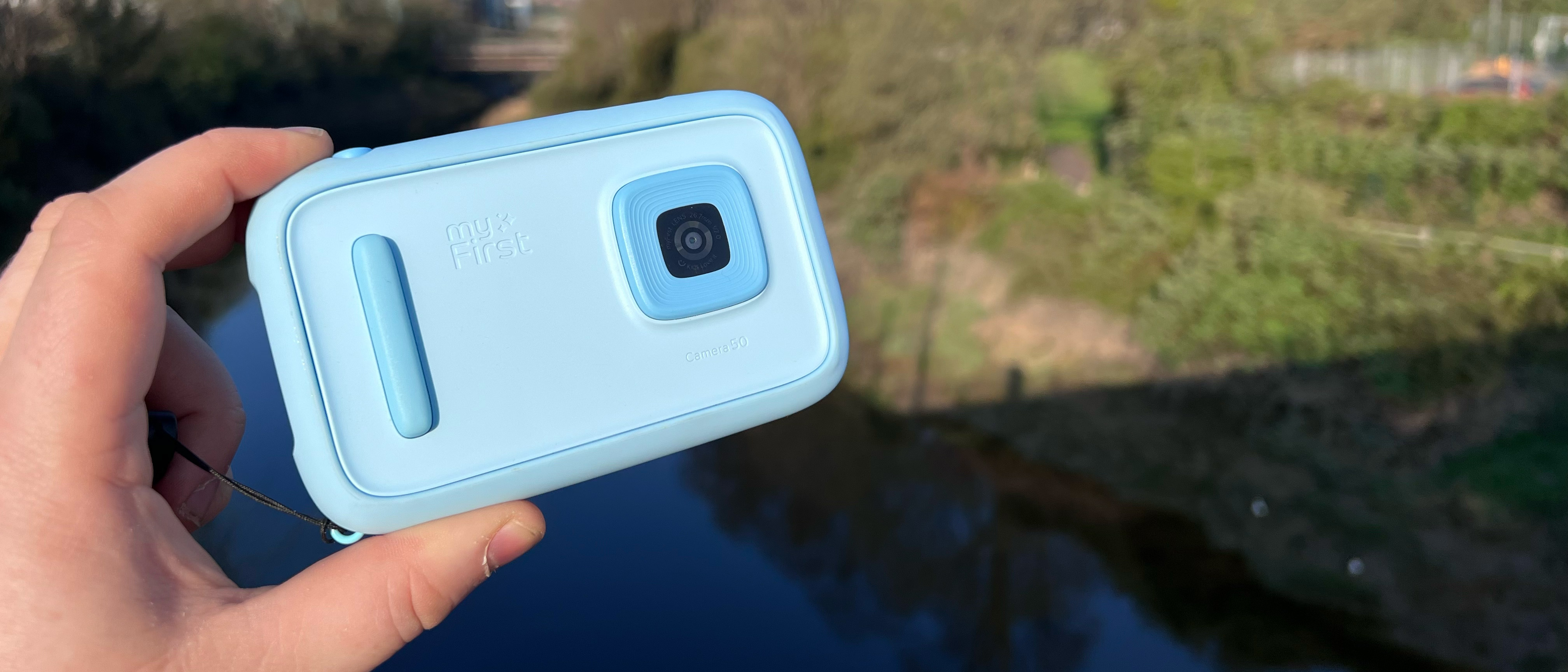Digital Camera World Verdict
SanDisk's Pro-Cinema CFexpress Type B card promises reliably fast performance across the board, and our testing backs this up. It aced not just our demanding real-world applications, but also our synthetic benchmark testing. If you need a dependable Type B card that'll handle not only the occasional need for speed, but also sustained periods of heavy use, then the Pro-Cinema is ideal. The only black mark here is pricing, which at the time of this review is higher than similarly quick cards of equivalent capacity.
Pros
- +
Excellent read/write speed
- +
Ideal for high res video
- +
Tough construction
Cons
- -
Only two capacity options
- -
Relatively expensive
Why you can trust Digital Camera World
CFexpress cards are everywhere now, so a manufacturer launching a new card needs something special to stand out from the crowd. Headline maximum read/write speeds are often the go-to marketing win, but with its new Pro-Cinema line, SanDisk is focussing not on maximum transfer speeds, but the cards' minimum sustained write rate.
Although great for news headlines, peak read/write speeds matter much less in real-world scenarios. On the other hand, sustained write speed is far more critical, especially when recording high resolution, high bit-rate video which demands extended periods of fast write speed. To that end, the SanDisk Pro Cinema card is rated for an impressive 1400MB/s minimum sustained write speed. This in turn qualifies the card for VPG400 certification and SanDisk claims Pro-Cinema cards are fast enough to record 8K video "flawlessly".
Contrast this with SanDisk's original Type B cards, which though capable of 1700MB/s read and 1400MB/s max read speeds in 512GB guise, have no quoted sustained write speed, making them an unknown quantity for recording high res video.
Read more: the best CFexpress cards
Key features
Pro-Cinema cards are capable of maximum 1700MB/s read and 1500MB/s write rates: that's good, but by no means the fastest figures amongst Gen 2.0 Type B cards, and way short of the 3500+MB/s performance that the newer Gen 4.0 Type B cards can achieve. But since no current consumer camera can actually utilise the extra performance of a Gen 4.0 card yet, the Pro-Cinema's peak performance is perfectly acceptable.
Only two capacity options are available: 320GB and 640GB, which at the time of this review are priced at $399.99/£397.99 and $699.99/£696.99, respectively. A separate 'Pro-Cinema CFexpress VPG400' in a 256GB capacity is also available, but this has a minimum write speed of only 400MB/s, so we don't consider it to be a genuine alternative to the 320GB and 640GB Pro-Cinema cards.
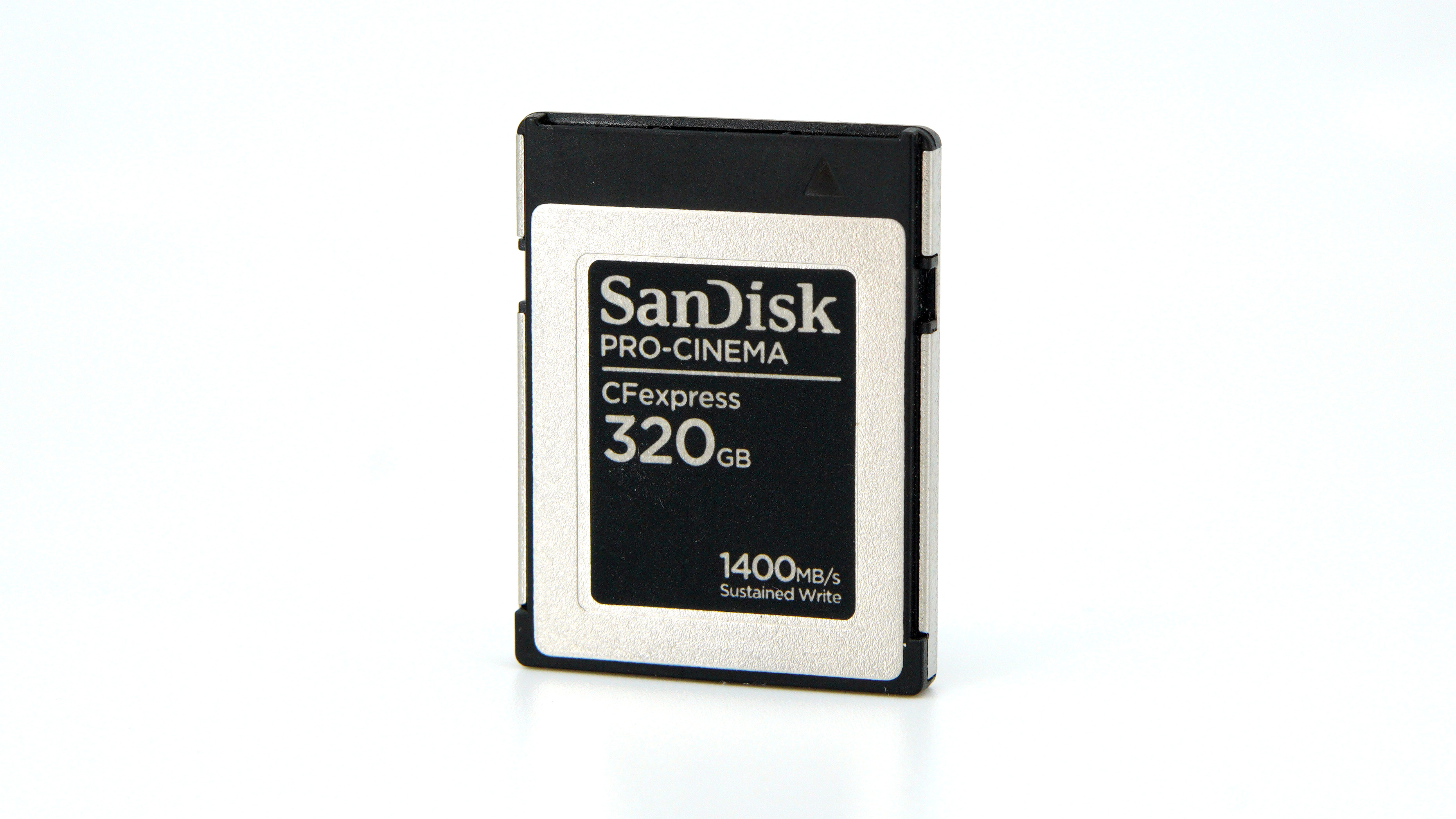
In-keeping with the professional Pro-Cinema ethos, SanDisk also claims the cards have a durable enclosure that can withstand drops from up to 1 meter, and a crushing force of up to 50 newtons. Externally though, the strict Type B form factor standard means that apart from the label, a Pro-Cinema card looks and handles just like any other Type B card.
Performance
We tested the Pro-Cinema in a Nikon Z6 III, as its 6K, 60p RAW recording is ideal for stress testing the card's video write speed. But even at these maximum resolution / frame rate / bit-rate settings, the Pro Cinema had no trouble recording smooth video with no glitches or dropped frames. Switching to burst shooting at the Z6 III's fastest continuous high speed mode also proved uneventful, with camera capturing its full 200-frame burst limit and transferring it from the internal buffer to the memory card with no noticeable delay. We also performed the same test with a V60 SDXC card and this did require several seconds in order to clear the camera's buffer.
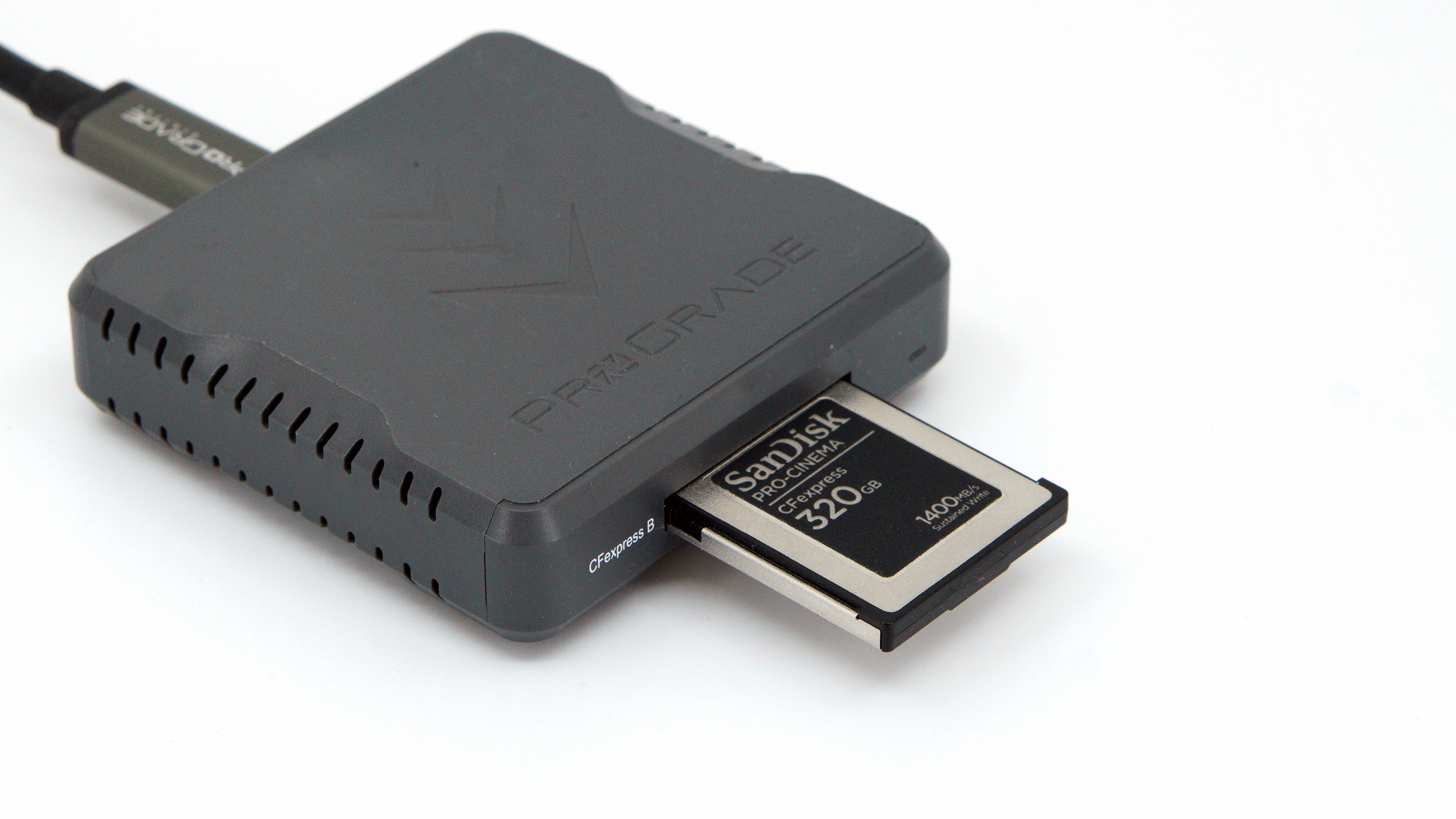
Evidently the Pro-Cinema can handle anything a camera can throw at it, so to really test its full speed potential, we broke out a fast USB 4.0 Type B card reader from Prograde Digital and a HP Z-Book Studio laptop with USB 4.0. This is important as most Type B card readers use a USB 3.2 Gen 2 interface, which effectively bottlenecks transfer speeds to around 800-900MB/s - way short of the speeds most Type B cards are capable of. With suitable testing hardware in place, we then fired up our memory card benchmarking software of choice, CrystalDiskMark:
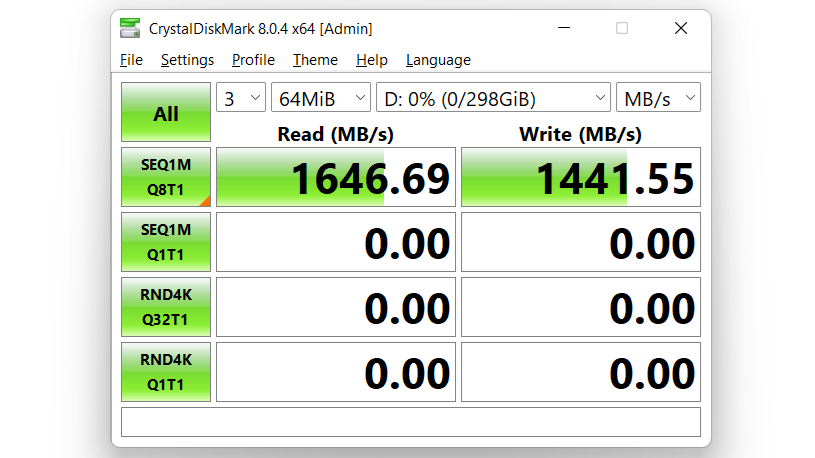
And the results were highly respectable. With a maximum read speed of 1646MB/s and peak write rate of 1441MB/s, our test card got impressively close to SanDisk's claimed 1700/1500MB/s read/write speed claims. No complaints here.
Verdict
It isn't often we test a CFexpress Type B card that performs near-enough as advertised. Most fall short of their manufacturer's speed claims by some margin when we software benchmark them, though they still tend to be more than fast enough for any real-world situation. But SanDisk's Pro-Cinema card aced not just our demanding real-world applications, but also our synthetic benchmark testing. If you need a dependable Type B card that'll handle not only the occasional need for speed, but also sustained periods of heavy use - recording extended periods of 4K, 6K and even 8K video, for example - then the Pro-Cinema is ideal.
However this performance and dependability does come at a relatively high price. At the time of writing the 320GB card can be had with a $100 discount, making it $299.99. Likewise, the 640GB version is currently available with a $200 discount, bringing its price down to $499.99. But even with these reductions, the competition is still significantly cheaper. A basic 512GB Type B card can cost less than $200, while a card like the Delkin Devices 650GB BLACK CFexpress Type B is even faster than the Pro-Cinema with a 1530 MB/s minimum sustained write speed, yet currently costs just $380.
Make no mistake, the SanDisk Pro-Cinema is a great Type B card, but just be sure to check its pricing is competitive when you come to buy.
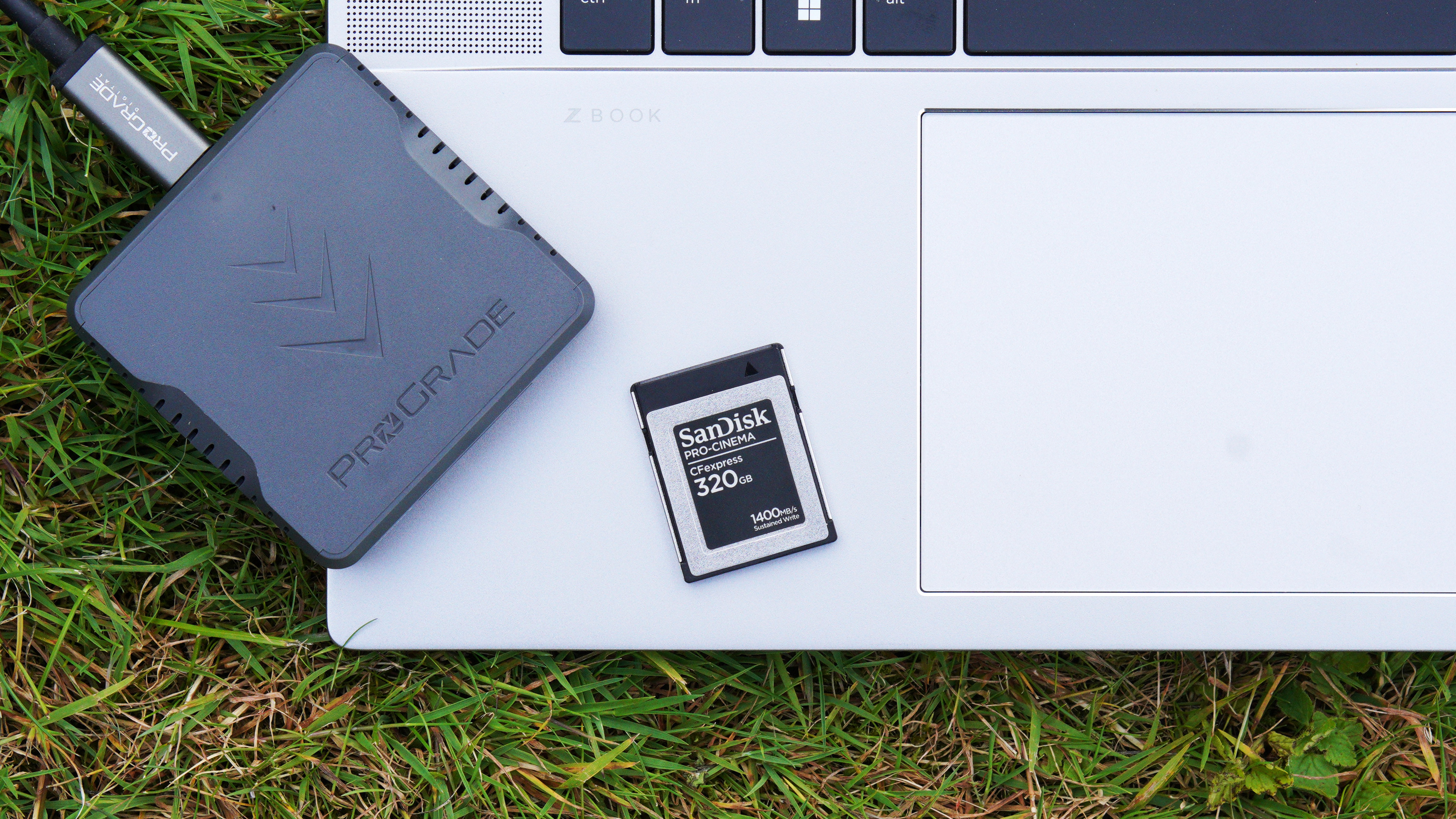
Ben is the Imaging Labs manager, responsible for all the testing on Digital Camera World and across the entire photography portfolio at Future. Whether he's in the lab testing the sharpness of new lenses, the resolution of the latest image sensors, the zoom range of monster bridge cameras or even the latest camera phones, Ben is our go-to guy for technical insight. He's also the team's man-at-arms when it comes to camera bags, filters, memory cards, and all manner of camera accessories – his lab is a bit like the Batcave of photography! With years of experience trialling and testing kit, he's a human encyclopedia of benchmarks when it comes to recommending the best buys.
